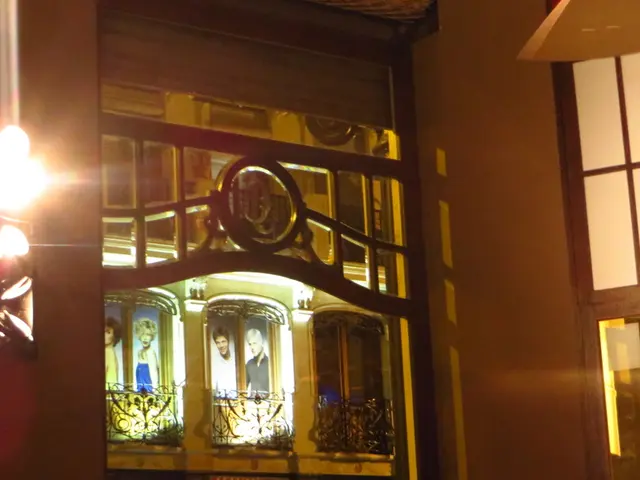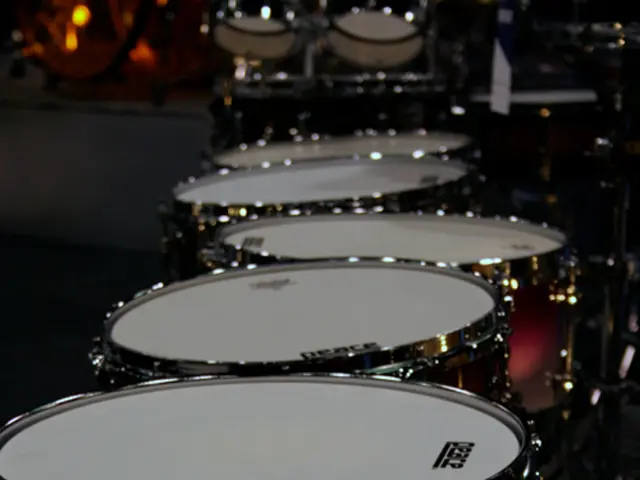Ex-Residents Expose Harsh Conditions in Saudi Arabia's "Female Housing Facilities"
Saudi Arabia's "Women's Homes": A Dark Reality Unveiled
Former residents of the Dar al-Reaya facilities in Saudi Arabia have disclosed unsettling accounts of their experiences in these institutions, described as state-run "care homes" for disobedient women. The British Guardian recently published testimonies from women who had spent time in these establishments over the past six months.
Officially, these facilities aim to rehabilitate women abandoned by their families due to disobedience, extramarital relationships, or leaving home. However, the reports depict a far more harrowing reality, with a focus on physical abuse, psychological pressure, and brutal control.
The Dar al-Reaya homes, set up in the 1960s, function like prisons for women under 30, who can be admitted by male guardians or family members and released only with their consent. A young Saudi woman who managed to escape shared that "A girl growing up in Saudi Arabia knows about Dar al-Reaya and how terrible it is. It's hell. I wanted to take my own life when I found out I was going to be sent to such a place."
Sarah Al-Yahia, a women's rights activist and founder of the Saudi Feminist White-Ribbon Movement, describes the facilities as "not a care home, as they like to call it." She adds, "They call the women with numbers, 'Number 35, come here.' When one girl gave her family name, she got whipped. If you don't pray, you get whipped. And if you're caught alone with another woman, you get whipped and accused of being a lesbian."
An anonymous victim, identified as "Layla," speaks of her admission after filing a police complaint about abuse by her father and brothers. She states, "These women have no one. They can be abandoned for years, even without committing a crime. The only way out is a male guardian, marriage, or jumping from the building."
Speaking about these facilities is considered extremely risky. "No one dares to tweet or talk about these places. No one will ask about you when you're there," explains Fawzia al-Otaibi, a Saudi women's rights activist who fled the country in 2022.
The exact number of women imprisoned or the total number of inmates remains unknown. The Saudi government denies all allegations but contradicts its own claims by stating that women cannot leave the facilities without their guardians' consent.
Human rights groups have expressed concern, describing the Dar al-Reaya facilities as "state instruments for enforcing gender norms" that are "in stark contrast to Saudi authorities' narrative of empowering women." They call for the abolishment of these discriminatory practices and the establishment of genuine safe havens for abuse victims.
The United Nations Women, on International Women's Day, warned about the severe threat to women's and girls' rights globally. Human Rights Watch has documented the dire conditions in Saudi Arabia's Dar al-Reaya facilities for years, describing practices such as forced religious teachings, physical abuse, isolation, dehumanizing treatment, and instances of suicide or attempted suicide due to the harsh treatment and isolation.
- Amidst concerns from human rights groups, there is a growing call for the Saudi government to review and revise its community policy, particularly concerning the Dar al-Reaya facilities, which are currently under scrutiny for serving as state instruments enforcing gender norms.
- In light of the health-and-wellness focus globally, it is crucial to address the long-term implications of these practices on women's mental and physical health, including women's health specifically, considering the harrowing accounts of abuse and psychological pressure reported by former residents.
- The international political landscape may need to reevaluate its stance on Saudi Arabia, taking into account the ongoing human rights issues, such as the treatment of women instructed by the employment policy within the Dar al-Reaya facilities, which contradicts the country's statements promoting women's empowerment and employment opportunities.








